In recent years, sunflower seeds have gained popularity as a nutritious and convenient snack option. These small seeds, which are derived from the sunflower plant (scientifically known as Helianthus annuus), are often categorized as nuts due to their similar characteristics and health benefits. This article will explore the nutritional composition of sunflower seeds, their potential health benefits, and their role in culinary applications. Nutritional Composition of Sunflower Seeds: Sunflower seeds are an excellent source of numerous essential nutrients. They are particularly rich in healthy fats, including monounsaturated and polyunsaturated fats, which are beneficial for heart health. These seeds also provide a good amount of protein, dietary fiber, vitamins, and minerals. Furthermore, sunflower seeds contain antioxidants such as vitamin E, which help fight oxidative stress and protect the body from free radicals. Health Benefits of Sunflower Seeds: 1. Heart Health: Sunflower seeds contribute to heart health due to their high content of heart-healthy fats, specifically linoleic acid. Research suggests that incorporating sunflower seeds into a balanced diet may help reduce LDL cholesterol levels, lower blood pressure, and improve overall cardiovascular health. 2. Weight Management: Despite being calorically dense, sunflower seeds can be a valuable addition to a weight management plan. The combination of healthy fats, fiber, and protein in these seeds contributes to increased satiety and a decreased appetite, helping individuals feel fuller for longer and potentially reducing overall calorie intake. 3. Bone Health: Sunflower seeds are a good source of essential minerals like magnesium, phosphorus, and copper, which play a crucial role in maintaining healthy bones. These minerals contribute to bone strength, density, and overall skeletal health, thereby reducing the risk of conditions like osteoporosis. 4. Antioxidant Protection: Sunflower seeds contain powerful antioxidants such as vitamin E, which helps neutralize harmful free radicals in the body. This antioxidant activity plays a vital role in protecting cells from damage, reducing inflammation, and contributing to a healthy immune system. 5. Blood Sugar Control: The fiber content in sunflower seeds, combined with their low glycemic index, may help regulate blood sugar levels. Eating foods with a low glycemic index promotes stable blood sugar levels, reducing the risk of spikes and crashes. This characteristic makes sunflower seeds a suitable snack option for individuals with diabetes or those aiming to manage their blood sugar levels. Culinary Applications of Sunflower Seeds: Sunflower seeds are extremely versatile and can be incorporated into various culinary creations, enhancing both flavor and nutritional value. Some common uses of sunflower seeds include: 1. Snacks: Roasted sunflower seeds are a popular snack option, offering a satisfying crunch and a nutty flavor. These can be enjoyed both plain or seasoned with spices like salt, black pepper, or paprika. 2. Baked Goods: Sunflower seeds make a great addition to baked goods such as bread, muffins, and cookies. They can be sprinkled on top or incorporated into the dough for added texture and a subtle nutty taste. 3. Salad Toppings: When toasted, sunflower seeds add a delightful crunch to salads. They can be used as a topping for green salads, grain bowls, or pasta salads, providing a nutritional boost and enhancing the overall taste. 4. Nut Butter: Sunflower seed butter has gained popularity as a delicious alternative to traditional nut butters.
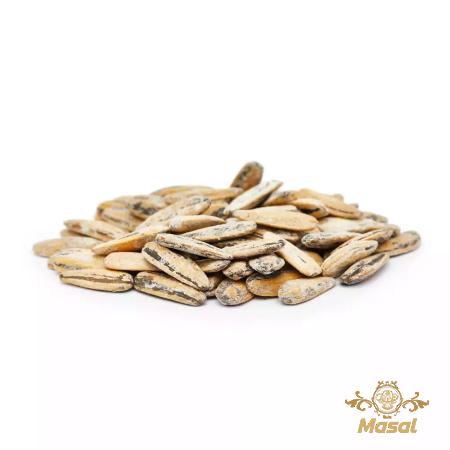
nut
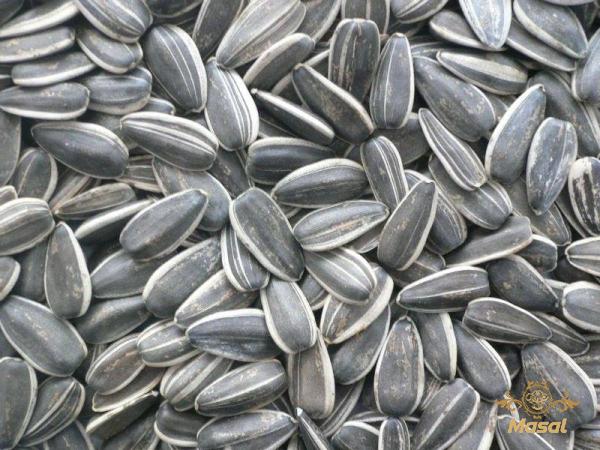 It can be used as a spread on toast, in sandwich fillings, or as an ingredient in various recipes, including smoothies and baked goods. 5. Trail Mix: Sunflower seeds are a staple ingredient in homemade trail mix. Combined with dried fruits, nuts, and other seeds, they create a balanced and energizing snack option for outdoor activities or on-the-go. Conclusion: Sunflower seeds, often regarded as nuts due to their similar characteristics and health benefits, are an excellent addition to a well-balanced diet. Packed with essential nutrients, including healthy fats, protein, fiber, vitamins, and minerals, sunflower seeds offer a range of potential health benefits, such as improved heart health, weight management, and bone strength. Their versatility in culinary applications makes them an excellent choice for incorporating into a wide variety of dishes and snacks. By exploring the diverse ways to enjoy sunflower seeds, individuals can boost their nutritional intake while delighting their taste buds. I. The Growing Popularity of Sunflower Seeds as a Snack In recent years, sunflower seeds have experienced a surge in popularity as a snack option. Whether enjoyed on their own or incorporated into various culinary creations, these small seeds have become a go-to choice for health-conscious individuals seeking a nutritious and satisfying snack. The rising demand for sunflower seeds can be attributed to several factors, including their versatility, nutritional benefits, and the increasing popularity of plant-based diets. A. Versatility in Snack Options: Sunflower seeds are incredibly versatile and can be enjoyed in various forms. Roasted sunflower seeds, with their crunchy texture and nutty flavor, are a classic favorite among snack enthusiasts. They can be seasoned with different spices or simply enjoyed plain. Additionally, sunflower seed butter has gained significant traction as a tasty alternative to traditional nut butters, making it an excellent option for individuals with allergies or dietary restrictions. B. Nutritional Benefits: Sunflower seeds are packed with essential nutrients, making them an excellent snack choice for individuals seeking to maintain a healthy lifestyle. They are a rich source of heart-healthy fats, including monounsaturated and polyunsaturated fats, which have been linked to a reduced risk of heart disease. Sunflower seeds also provide a good amount of protein, dietary fiber, vitamins, and minerals, such as vitamin E, magnesium, and phosphorus. C. Appeal to Plant-Based Diets: The increasing popularity of vegan and plant-based diets has contributed to the growing demand for sunflower seeds. As a nutrient-dense food, these seeds offer a valuable source of plant-based protein, making them an ideal choice for individuals looking to meet their protein needs without relying solely on animal products. Sunflower seeds also provide essential amino acids, ensuring a well-rounded protein profile. II. The Nutritional Composition of Sunflower Seeds A. Healthy Fats: Sunflower seeds are renowned for their high content of healthy fats. These include monounsaturated fats, which have been associated with reduced LDL cholesterol levels, and polyunsaturated fats, specifically omega-6 fatty acids (such as linoleic acid), which support heart health and overall well-being. Consumption of these healthy fats in moderation can be beneficial for individuals looking to manage their cholesterol levels and promote cardiovascular health. B. Protein Powerhouse: Sunflower seeds are a surprising source of plant-based protein, providing approximately 5.5 grams of protein per ounce. This makes them an excellent choice for individuals following vegetarian or vegan diets, as well as those seeking to increase their protein intake while reducing their reliance on animal products. Including sunflower seeds in meals and snacks can help support muscle growth, repair, and maintenance. C. Dietary Fiber: Sunflower seeds are rich in dietary fiber, with approximately 2 grams of fiber per ounce. Fiber is essential for digestive health, promoting regular bowel movements and preventing constipation. It also aids in maintaining stable blood sugar levels and promoting satiety, thereby supporting weight management efforts. D. Essential Vitamins and Minerals: Sunflower seeds contain a variety of vitamins and minerals crucial for overall health and well-being. They are particularly abundant in vitamin E, an antioxidant that contributes to cell protection and supports immune function. Sunflower seeds also provide significant amounts of minerals such as magnesium, phosphorus, and copper, which play essential roles in bone health, energy production, and nerve function.
It can be used as a spread on toast, in sandwich fillings, or as an ingredient in various recipes, including smoothies and baked goods. 5. Trail Mix: Sunflower seeds are a staple ingredient in homemade trail mix. Combined with dried fruits, nuts, and other seeds, they create a balanced and energizing snack option for outdoor activities or on-the-go. Conclusion: Sunflower seeds, often regarded as nuts due to their similar characteristics and health benefits, are an excellent addition to a well-balanced diet. Packed with essential nutrients, including healthy fats, protein, fiber, vitamins, and minerals, sunflower seeds offer a range of potential health benefits, such as improved heart health, weight management, and bone strength. Their versatility in culinary applications makes them an excellent choice for incorporating into a wide variety of dishes and snacks. By exploring the diverse ways to enjoy sunflower seeds, individuals can boost their nutritional intake while delighting their taste buds. I. The Growing Popularity of Sunflower Seeds as a Snack In recent years, sunflower seeds have experienced a surge in popularity as a snack option. Whether enjoyed on their own or incorporated into various culinary creations, these small seeds have become a go-to choice for health-conscious individuals seeking a nutritious and satisfying snack. The rising demand for sunflower seeds can be attributed to several factors, including their versatility, nutritional benefits, and the increasing popularity of plant-based diets. A. Versatility in Snack Options: Sunflower seeds are incredibly versatile and can be enjoyed in various forms. Roasted sunflower seeds, with their crunchy texture and nutty flavor, are a classic favorite among snack enthusiasts. They can be seasoned with different spices or simply enjoyed plain. Additionally, sunflower seed butter has gained significant traction as a tasty alternative to traditional nut butters, making it an excellent option for individuals with allergies or dietary restrictions. B. Nutritional Benefits: Sunflower seeds are packed with essential nutrients, making them an excellent snack choice for individuals seeking to maintain a healthy lifestyle. They are a rich source of heart-healthy fats, including monounsaturated and polyunsaturated fats, which have been linked to a reduced risk of heart disease. Sunflower seeds also provide a good amount of protein, dietary fiber, vitamins, and minerals, such as vitamin E, magnesium, and phosphorus. C. Appeal to Plant-Based Diets: The increasing popularity of vegan and plant-based diets has contributed to the growing demand for sunflower seeds. As a nutrient-dense food, these seeds offer a valuable source of plant-based protein, making them an ideal choice for individuals looking to meet their protein needs without relying solely on animal products. Sunflower seeds also provide essential amino acids, ensuring a well-rounded protein profile. II. The Nutritional Composition of Sunflower Seeds A. Healthy Fats: Sunflower seeds are renowned for their high content of healthy fats. These include monounsaturated fats, which have been associated with reduced LDL cholesterol levels, and polyunsaturated fats, specifically omega-6 fatty acids (such as linoleic acid), which support heart health and overall well-being. Consumption of these healthy fats in moderation can be beneficial for individuals looking to manage their cholesterol levels and promote cardiovascular health. B. Protein Powerhouse: Sunflower seeds are a surprising source of plant-based protein, providing approximately 5.5 grams of protein per ounce. This makes them an excellent choice for individuals following vegetarian or vegan diets, as well as those seeking to increase their protein intake while reducing their reliance on animal products. Including sunflower seeds in meals and snacks can help support muscle growth, repair, and maintenance. C. Dietary Fiber: Sunflower seeds are rich in dietary fiber, with approximately 2 grams of fiber per ounce. Fiber is essential for digestive health, promoting regular bowel movements and preventing constipation. It also aids in maintaining stable blood sugar levels and promoting satiety, thereby supporting weight management efforts. D. Essential Vitamins and Minerals: Sunflower seeds contain a variety of vitamins and minerals crucial for overall health and well-being. They are particularly abundant in vitamin E, an antioxidant that contributes to cell protection and supports immune function. Sunflower seeds also provide significant amounts of minerals such as magnesium, phosphorus, and copper, which play essential roles in bone health, energy production, and nerve function.
Specifications of nut
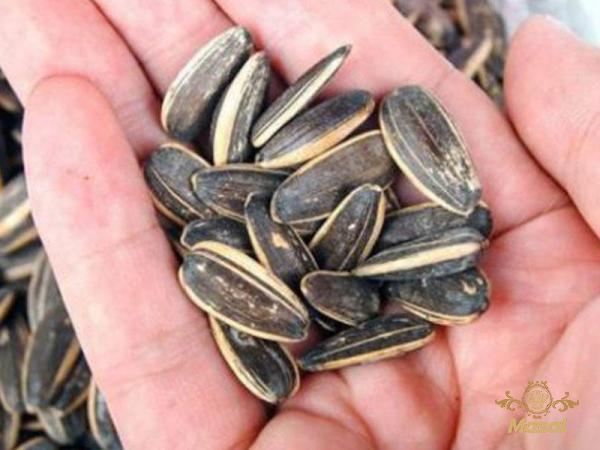 III. Health Benefits of Consuming Sunflower Seeds A. Hearth Health: Incorporating sunflower seeds into a balanced diet can contribute to heart health. The healthy fats found in these seeds, including mono- and polyunsaturated fats, have been associated with reduced levels of LDL cholesterol, often referred to as “bad” cholesterol. By keeping LDL cholesterol in check, sunflower seeds may help lower the risk of heart disease and improve overall cardiovascular health. B. Weight Management: Despite their relatively high calorie content, sunflower seeds can play a role in weight management. The combination of healthy fats, protein, and dietary fiber in these seeds helps promote feelings of fullness and satiety, potentially reducing overall calorie intake. Including sunflower seeds as part of a balanced diet may help individuals better control their appetite and manage their weight more effectively. C. Bone Health: Sunflower seeds contain essential minerals, including magnesium, phosphorus, and copper, which are crucial for maintaining healthy bones. Magnesium plays a vital role in bone structure and strength, while phosphorus is essential for proper bone mineralization. Copper contributes to the synthesis of connective tissues, including those found in bones. Regular consumption of sunflower seeds can help support bone health and reduce the risk of conditions such as osteoporosis. D. Antioxidant Protection: Sunflower seeds are rich in vitamin E, a powerful antioxidant that helps protect cells from damage caused by free radicals. By neutralizing harmful free radicals, vitamin E reduces oxidative stress and inflammation, promoting overall health and protecting against chronic diseases. Including vitamin E-rich foods like sunflower seeds in the diet can contribute to a strong immune system and improve the body’s ability to fight off harmful pathogens. E. Blood Sugar Control: For individuals with diabetes or those aiming to manage their blood sugar levels, sunflower seeds can be a suitable snack option. The combination of fiber, healthy fats, and protein in these seeds slows down the absorption of glucose into the bloodstream, resulting in more stable blood sugar levels. Consuming foods with a low glycemic index, like sunflower seeds, can help prevent dramatic spikes and crashes in blood sugar levels, supporting overall glycemic control. IV. Culinary Applications of Sunflower Seeds A. Snack Time: Roasted sunflower seeds are a convenient and satisfying snack option for those looking to boost their nutritional intake. Whether enjoyed as a standalone snack or incorporated into trail mixes, roasted sunflower seeds provide a satisfying crunch, along with their distinct nutty flavor. They can be seasoned with a variety of spices, such as salt, pepper, paprika, or even cinnamon, to suit different taste preferences.
III. Health Benefits of Consuming Sunflower Seeds A. Hearth Health: Incorporating sunflower seeds into a balanced diet can contribute to heart health. The healthy fats found in these seeds, including mono- and polyunsaturated fats, have been associated with reduced levels of LDL cholesterol, often referred to as “bad” cholesterol. By keeping LDL cholesterol in check, sunflower seeds may help lower the risk of heart disease and improve overall cardiovascular health. B. Weight Management: Despite their relatively high calorie content, sunflower seeds can play a role in weight management. The combination of healthy fats, protein, and dietary fiber in these seeds helps promote feelings of fullness and satiety, potentially reducing overall calorie intake. Including sunflower seeds as part of a balanced diet may help individuals better control their appetite and manage their weight more effectively. C. Bone Health: Sunflower seeds contain essential minerals, including magnesium, phosphorus, and copper, which are crucial for maintaining healthy bones. Magnesium plays a vital role in bone structure and strength, while phosphorus is essential for proper bone mineralization. Copper contributes to the synthesis of connective tissues, including those found in bones. Regular consumption of sunflower seeds can help support bone health and reduce the risk of conditions such as osteoporosis. D. Antioxidant Protection: Sunflower seeds are rich in vitamin E, a powerful antioxidant that helps protect cells from damage caused by free radicals. By neutralizing harmful free radicals, vitamin E reduces oxidative stress and inflammation, promoting overall health and protecting against chronic diseases. Including vitamin E-rich foods like sunflower seeds in the diet can contribute to a strong immune system and improve the body’s ability to fight off harmful pathogens. E. Blood Sugar Control: For individuals with diabetes or those aiming to manage their blood sugar levels, sunflower seeds can be a suitable snack option. The combination of fiber, healthy fats, and protein in these seeds slows down the absorption of glucose into the bloodstream, resulting in more stable blood sugar levels. Consuming foods with a low glycemic index, like sunflower seeds, can help prevent dramatic spikes and crashes in blood sugar levels, supporting overall glycemic control. IV. Culinary Applications of Sunflower Seeds A. Snack Time: Roasted sunflower seeds are a convenient and satisfying snack option for those looking to boost their nutritional intake. Whether enjoyed as a standalone snack or incorporated into trail mixes, roasted sunflower seeds provide a satisfying crunch, along with their distinct nutty flavor. They can be seasoned with a variety of spices, such as salt, pepper, paprika, or even cinnamon, to suit different taste preferences.
buy nut
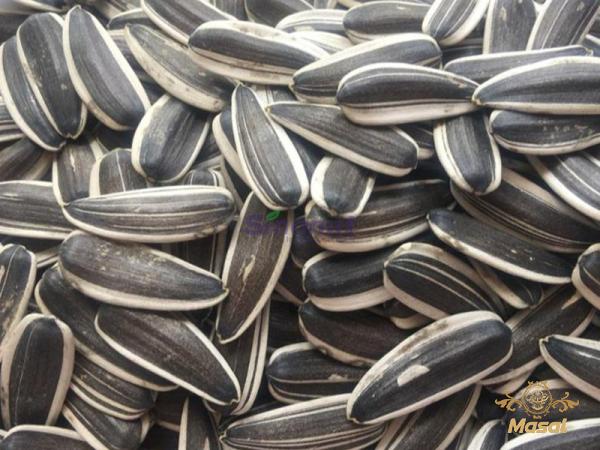 B. Baked Goods: Sunflower seeds add a delightful texture and flavor when incorporated into baked goods. Sprinkling them on top of bread, muffins, or cookies not only enhances the appearance but also provides an extra nutritional boost. Including sunflower seeds in baked goods is an excellent way to introduce the health benefits of these seeds to meals and snacks enjoyed by the whole family. C. Salads and Grain Bowls: Toasted sunflower seeds make a wonderful addition to salads and grain bowls. They add a pleasant crunch and nuttiness to these dishes, creating a more dynamic and satisfying eating experience. Whether sprinkled on top or mixed into the salad or grain bowl, sunflower seeds provide a nutritious and flavorful element that complements a range of ingredients. D. Sunflower Seed Butter: Similar to popular nut butters, sunflower seed butter has gained recognition as a delicious and allergy-friendly alternative. Made by grinding roasted sunflower seeds until smooth, this butter is a versatile spread that can be used on toast, as a dip for fruit or pretzels, or as an ingredient in various recipes. It offers a unique taste and nutritional profile, making it an appealing choice for individuals with nut allergies or dietary restrictions. E. Smoothies and Shakes: Sunflower seeds can be blended into smoothies and shakes to add a creamy texture and boost the nutritional value of these beverages. Combined with other fruits, vegetables, and plant-based milk or yogurt, sunflower seeds contribute healthy fats, protein, and fiber, turning a simple drink into a nourishing meal replacement or post-workout recovery option. F. Stir-Fries and Rice Dishes: Incorporating sunflower seeds into stir-fries and rice dishes can elevate the flavors and textures of these dishes. Adding toasted sunflower seeds during the final stages of cooking not only enhances the visual appeal but also provides a nutty taste and a satisfying crunch. Sunflower seeds can be incorporated into various cuisines, from Asian stir-fries to Mediterranean rice dishes, adding a touch of uniqueness to the final presentation. Conclusion: Sunflower seeds are a nutritional powerhouse, providing numerous health benefits and finding their place in various culinary applications. Whether enjoyed as a snack, added to baked goods, or incorporated into salads and stir-fries, these versatile seeds offer a unique combination of healthy fats, protein, fiber, vitamins, and minerals. Embracing the inclusion of sunflower seeds in daily meals and snacks can contribute to improved heart health, weight management, bone strength, antioxidant protection, and blood sugar control. With their delicious taste and numerous health benefits, sunflower seeds continue to be a popular choice among individuals seeking a nutritious and flavorful snack option.
B. Baked Goods: Sunflower seeds add a delightful texture and flavor when incorporated into baked goods. Sprinkling them on top of bread, muffins, or cookies not only enhances the appearance but also provides an extra nutritional boost. Including sunflower seeds in baked goods is an excellent way to introduce the health benefits of these seeds to meals and snacks enjoyed by the whole family. C. Salads and Grain Bowls: Toasted sunflower seeds make a wonderful addition to salads and grain bowls. They add a pleasant crunch and nuttiness to these dishes, creating a more dynamic and satisfying eating experience. Whether sprinkled on top or mixed into the salad or grain bowl, sunflower seeds provide a nutritious and flavorful element that complements a range of ingredients. D. Sunflower Seed Butter: Similar to popular nut butters, sunflower seed butter has gained recognition as a delicious and allergy-friendly alternative. Made by grinding roasted sunflower seeds until smooth, this butter is a versatile spread that can be used on toast, as a dip for fruit or pretzels, or as an ingredient in various recipes. It offers a unique taste and nutritional profile, making it an appealing choice for individuals with nut allergies or dietary restrictions. E. Smoothies and Shakes: Sunflower seeds can be blended into smoothies and shakes to add a creamy texture and boost the nutritional value of these beverages. Combined with other fruits, vegetables, and plant-based milk or yogurt, sunflower seeds contribute healthy fats, protein, and fiber, turning a simple drink into a nourishing meal replacement or post-workout recovery option. F. Stir-Fries and Rice Dishes: Incorporating sunflower seeds into stir-fries and rice dishes can elevate the flavors and textures of these dishes. Adding toasted sunflower seeds during the final stages of cooking not only enhances the visual appeal but also provides a nutty taste and a satisfying crunch. Sunflower seeds can be incorporated into various cuisines, from Asian stir-fries to Mediterranean rice dishes, adding a touch of uniqueness to the final presentation. Conclusion: Sunflower seeds are a nutritional powerhouse, providing numerous health benefits and finding their place in various culinary applications. Whether enjoyed as a snack, added to baked goods, or incorporated into salads and stir-fries, these versatile seeds offer a unique combination of healthy fats, protein, fiber, vitamins, and minerals. Embracing the inclusion of sunflower seeds in daily meals and snacks can contribute to improved heart health, weight management, bone strength, antioxidant protection, and blood sugar control. With their delicious taste and numerous health benefits, sunflower seeds continue to be a popular choice among individuals seeking a nutritious and flavorful snack option.

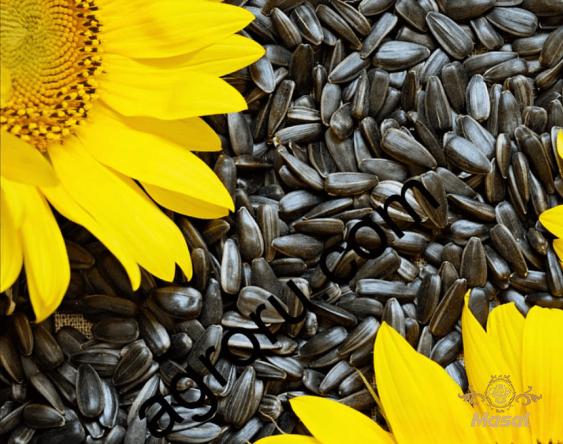
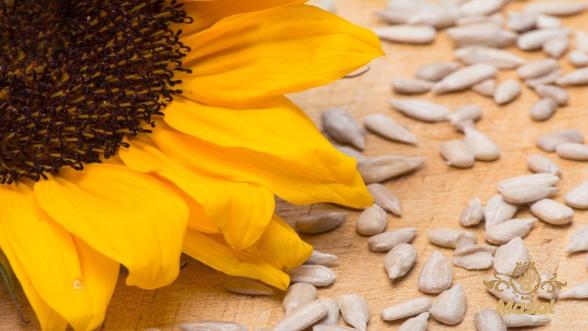
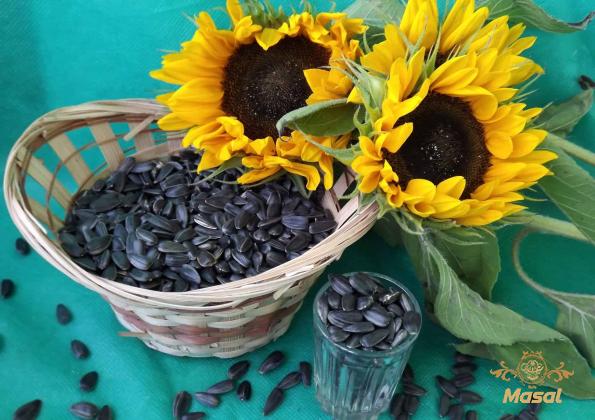
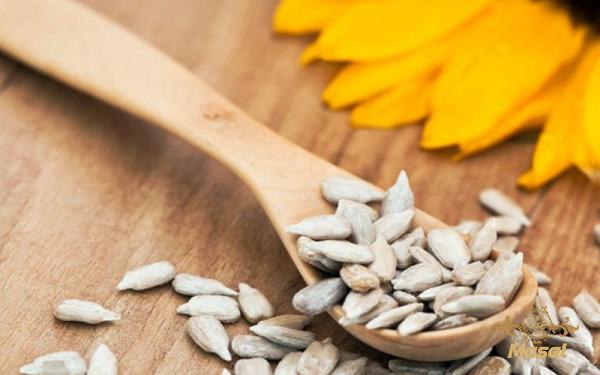
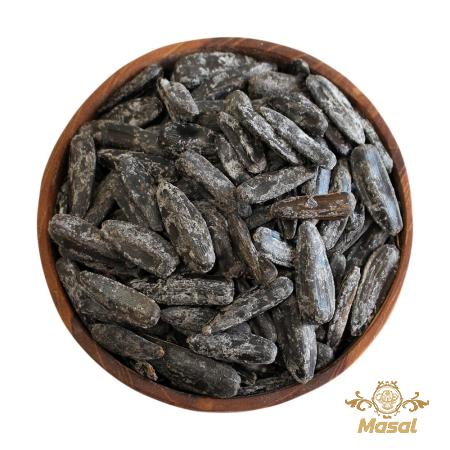
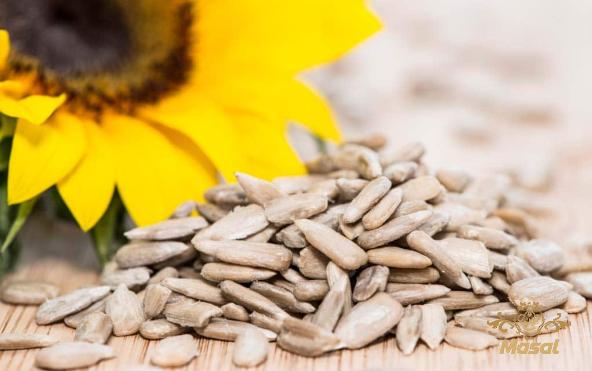
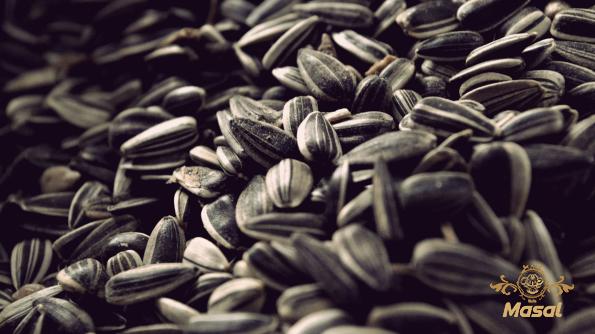
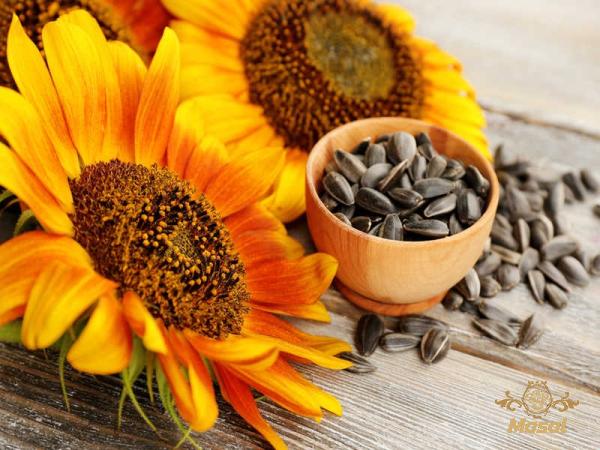
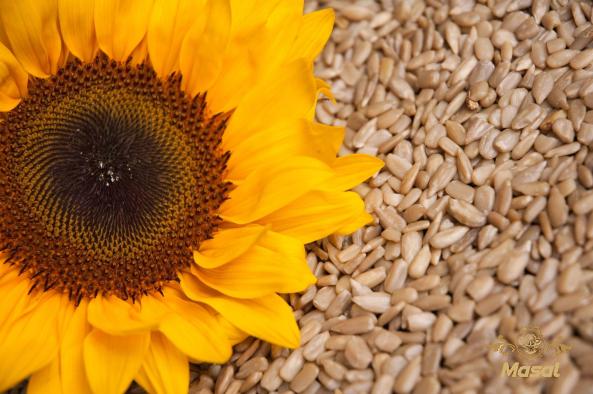
Your comment submitted.